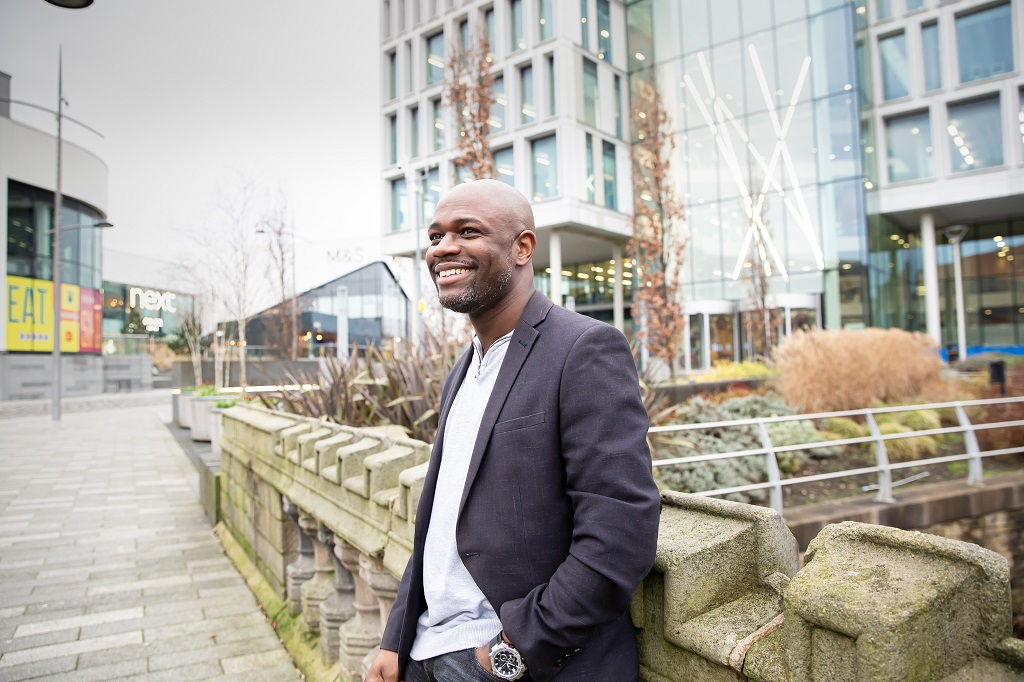Commentary
COMMENT | Strength in difference at heart of ‘placekeeping’
In a four-part series, Hydrock’s engineering team has discussed the changing nature of place and communities in the North West. In this final instalment, director of building performance engineering Dilon Hilton looks at the greater need for more local provision and fit-for-purpose buildings.
Jack Frost has arrived, the cable-knit jumpers are out, which means the festive period is around the corner and we’re ushering out another year. Although, at the end of 2020, things will be different: it will feel smaller, introspective and more local.
Let’s be honest, we’re tired of hearing about Covid-19; it’s here and it’s affected us all. But if this period has taught us anything, it’s the strength found in, and true value of, community.
There’s a well-intended industry preoccupation on ‘placemaking’ and ‘20-minute city’ visions to connect people to the city centre. However, in my opinion, this shouldn’t be at the expense of ‘placekeeping’ and meeting needs and providing opportunity on doorsteps across our suburbs ‒ like we’re seeing, for example, with progress being made on the £400m regeneration of Rochdale town centre.
What happened to the days when the focus was on making sure we had the makings of a town…a local shop, doctor’s practice, schools and parks? As high streets and offices shut down during lockdown, we’ve become largely homebased and thankful for such local amenities.
It’s said that people in small towns, much more than in cities, share a destiny. From the outside looking in it feels like there’s an assumed binary in which for one to be successful, the other must struggle.
Our unprecedented situation offers the chance for the decision-makers behind masterplans to get things right to protect and create more equitable communities. Key to this will be shifting consultation methods to holistically include what people want and need, rather than being dominated by the desires of certain age groups or demographics.
I moved from London to Greater Manchester 14 years ago. During that time, I’ve had the pleasure of living in Bury, Rochdale, Salford and currently, Trafford, and as a family who have required the provision of specialist schools for our two children, both of whom have special education needs, I’m only too aware of when shortages exist at a local level for community services.
Specialist schools are largely full and even the ones with available places can’t always meet the needs of every child under a one-size-fits-all blanket. The number of children and young people being educated in state-funded specialist schools and colleges has increased by 5.3% in the past year, and now stands in excess of 128,000 pupils according to the Office for National Statistics. This puts huge pressure on local councils who can’t meet need or demand, often leaving those with high needs without education.
As a family, our search spanned Bolton, Bury, Cheadle, Preston, Radcliffe, Rochdale, Stockport and Warrington ‒ and everywhere in between ‒ trying to answer the Goldilocks dilemma and find the right fit for my 14-year-old son. Kian is autistic, has learning difficulties, a sensory processing disorder and an anxiety disorder. He’s been out of formal education for almost three years now, following an unsuccessful transition to high school, which has shaken his confidence and provided a set-back in education provision and his ability to access places and activities in the community.
Kian requires structured and specialist support. He relies on routines and schedules and can become extremely distressed by unexpected changes, even to the smallest degree. Specialist provision in education can vary drastically, from individual and sensory rooms, to on-site speech and language, physiotherapy and occupational therapy; each requiring slightly different spaces and set-ups.
Home-to-school transport is a service that families depend on to access education. The government currently spends in excess of £1bn on this every year ‒ and even more on the additional professional services required in SEN schools ‒ and I sympathise with the associated budgetary pressures, especially now. However, local authority masterplans really need to do more to address the shortage of provision, in and out of both mainstream and SEN schools moving forward.
While the search for the right school goes on, we’re fortunate to have a place in our community where Kian feels comfortable in the shape of Everyone Can, a technology and gaming centre specifically designed for people with disabilities. Formed by experts in electric Assistive Technology (eAT), the charity has provided a safe environment and a platform for Kian to grow in confidence and regain trust in people, which has been truly life-changing.
When I first moved from London, I was surprised by how people across Greater Manchester identify with their own towns. My misguided view that, within an hour’s drive, they’re all one and the same was quickly corrected with “I’m not from Manchester, I’m from [Insert your own town]” exclamations.
I came to realise that many people don’t desire the city centre or its golden fleece. People are proud of where they live and aspire to work nearby, near to their kids’ school and to reduce their daily commute. In our case, we wanted to find the appropriate provision for Kian.
Community exceeds a single development of new apartments and townhouses. Yes, there’s a housing crisis to overcome. However, in parallel to more homes we also need to build more schools, dental surgeries, hospitals, gyms and certainly more places like the Everyone Can centre.
As a building services engineer, I’m passionate about ‘Good’ building design which, at its core, is about people: those who design and build it, those who own and operate it, and most of all, those who use it.
Extending this, the notion of ‘connected thinking’ has a critical role in building design, especially where achieving net zero targets are concerned.
The education sector is notably taking the issue of carbon reduction seriously. Higher education institutions are ideally placed to make a difference as we’ve seen ‒ so many important social movements of the past half-century gathered support or gained traction on campus, such as anti-apartheid, civil rights and free speech. The issue of climate change is every bit as significant and, if we’re to reach 2050 targets, influencing today’s young minds will be crucial to nurturing a green economy.
Hydrock is currently supporting a number of universities, including LJMU and UCLan, to access the Salix Public Sector Decarbonisation Scheme which aims to unleash innovation and tackle climate change. Launched by the Department for Business, Energy & Industrial Strategy, the scheme is offering £1bn of grant funding for capital energy efficiency and heat decarbonisation projects within public sector and non-domestic buildings.
What’s the link between good local building design, energy and sustainability, and SEN provision you might ask? In theory, every pound saved on energy is one that can be put back into the education budget, used to save struggling industries, or help people back into work.
When we get things right from the outset, the positive knock-on effects are tenfold. Better homes, workplaces, schools and universities ‒ creating more inclusive opportunities for people in their local communities and driving economic growth.

As we move beyond this year and rebuild, let’s not leave anyone behind…
- Dilon Hilton is director of building performance engineering at Hydrock








Great article my friend, proud to work with you!
By Lewis Stonehouse
Great article my friend. Completely agree, we have a problem with procurement, where joined up thinking between build cost and in-use costs is missing.
By Lewis Stonehouse
A great read Dilon. I’ve really enjoyed this whole series from Hydrock. Loads of insight to takeaway and a strong personal touch to all the pieces. And what a line t finish on “let’s not leave anyone behind”. Chapeau!
By Matt Pickering
A great article that connects education, communities, energy and development . I can fully appreciate the comment on SEN services and the dilemmas it creates for families having had experience in the past. It does need greater review and whilst it can be masterplanned it also needs proper funding too.
By taxed
Very interesting. Thanks, Dilon
By David Long
I totally agree! Great article Dilon. Let’s get more funding into SEN schools and SEN units and let our children thrive in the environment they deserve.
By Katherine Fenna
So proud of my nephew Dilon and all the ways in which he is making a difference in the lives of others most importantly in the lives of his beautiful sons.So proud of you Dilon.
By Elizabeth Thomas
A great insight into your background and passion for the industry you work within. Don’t look back, look forward!
By Stu Giles